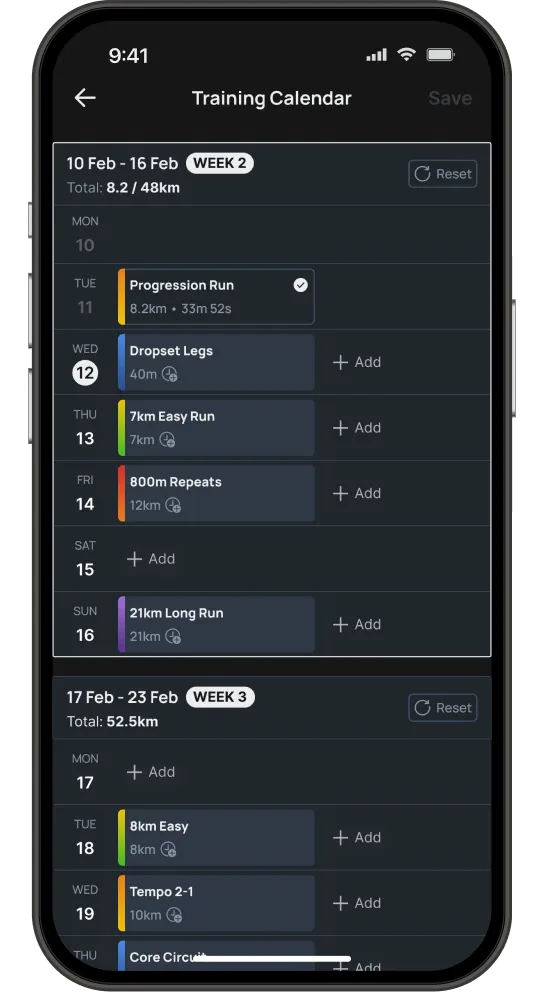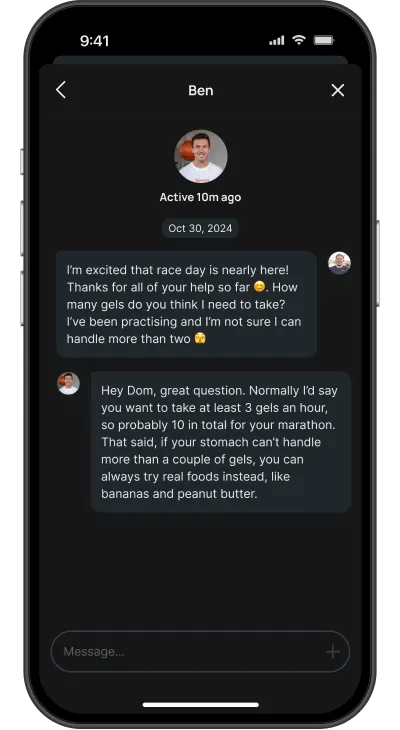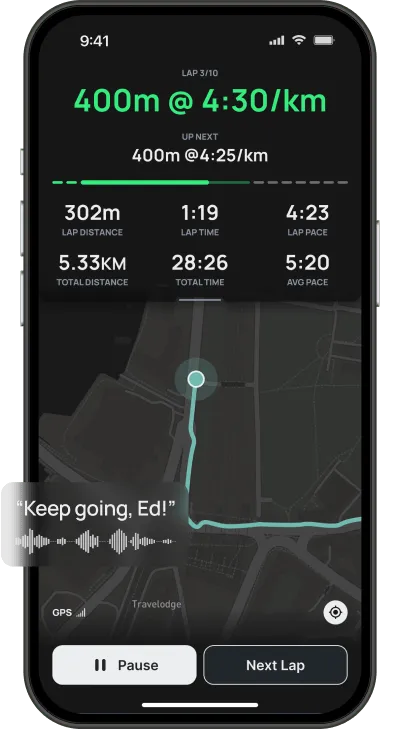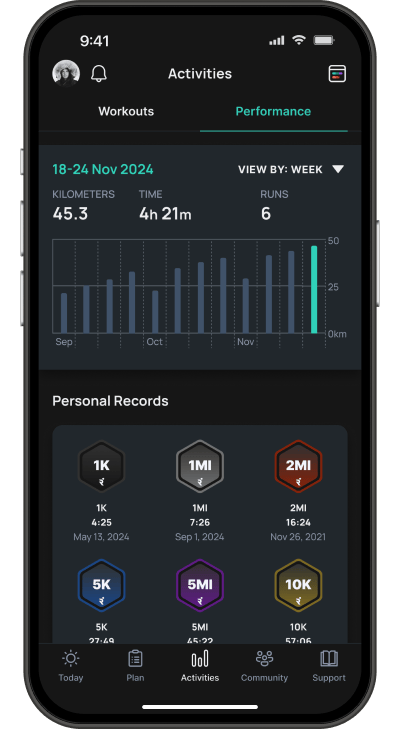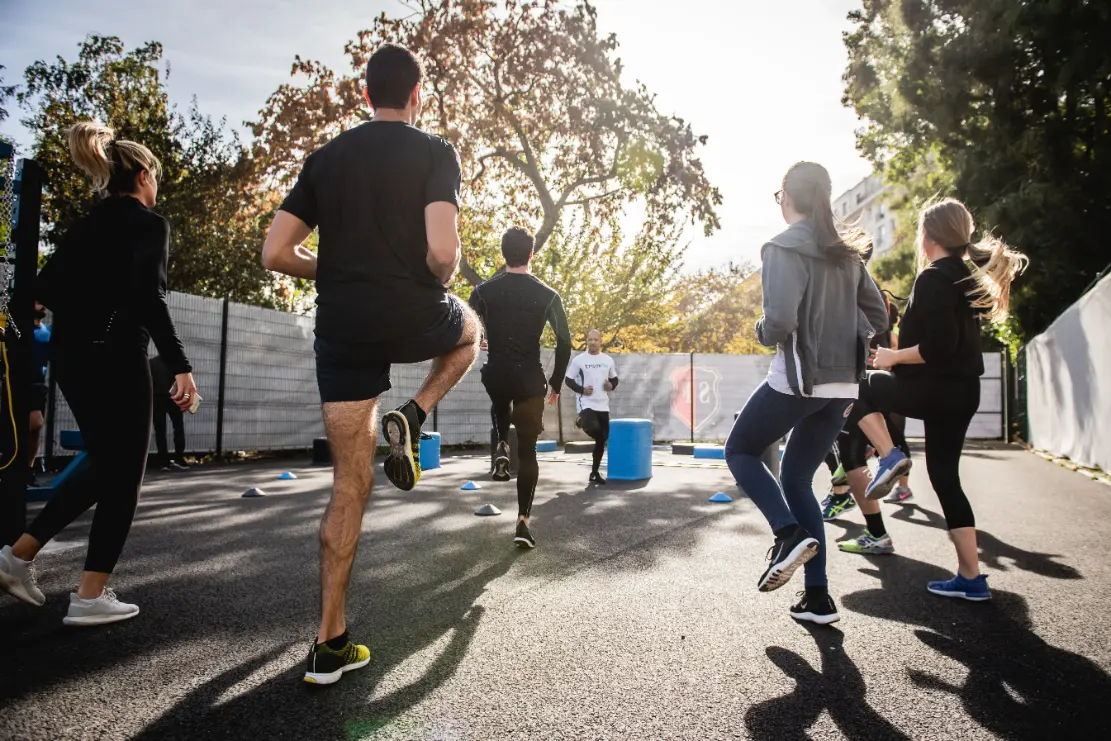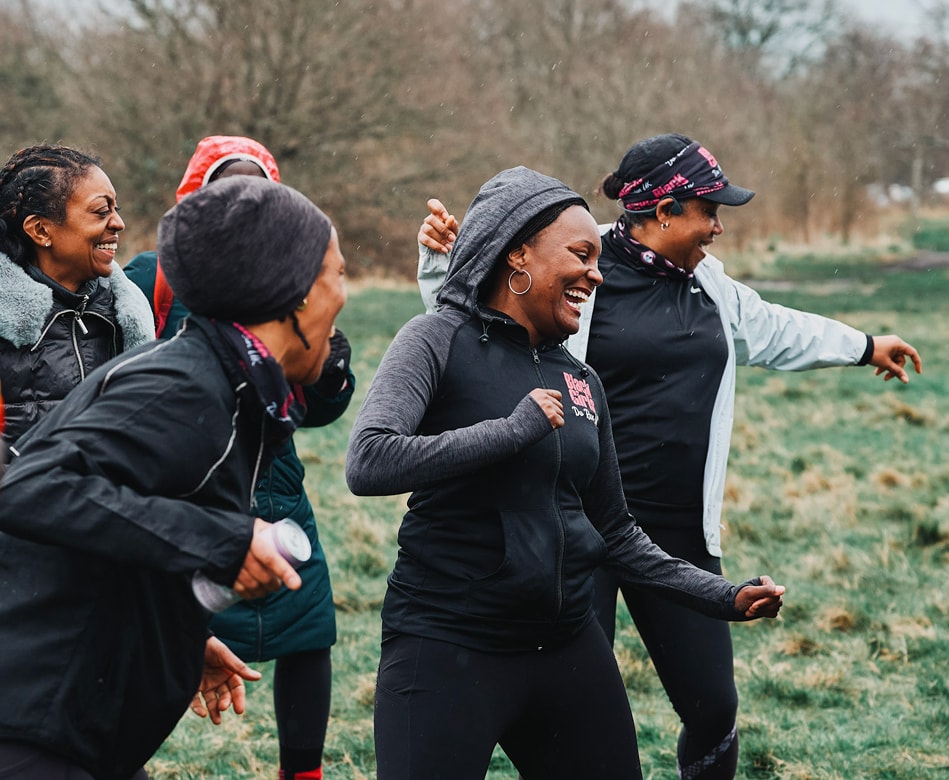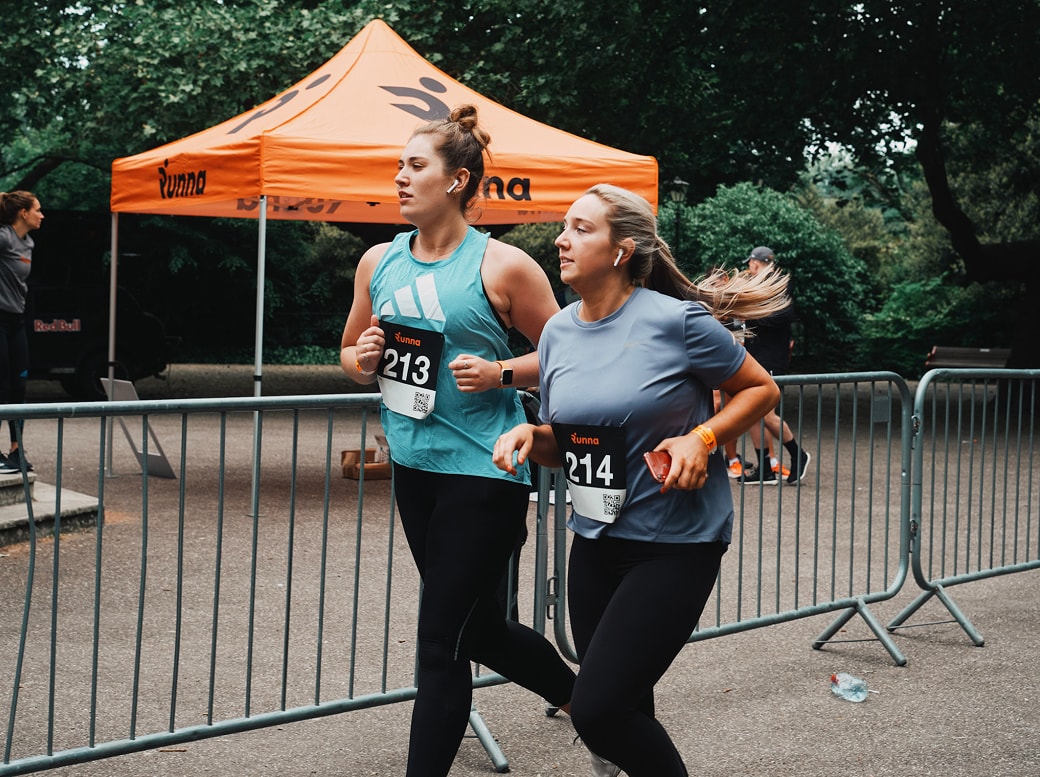Ultramarathon Training Plans
Ultramarathons are the ultimate test of stamina and mindset - longer distances, tougher terrain, and hours on your feet. With a structured plan, you’ll gain the strength, discipline, and confidence to take it on.

How to train for an ultramarathon
An ultramarathon is any race longer than the marathon distance of 42.2 km (26.2 miles). They can be run over a set distance or within a fixed time, where the goal is to cover as much ground as possible. Many ultras take place on trails, through mountains, deserts, or other tough environments — part of the challenge and the appeal. With Runna, you can train for an ultra up to 50k.
Ultras are not just about running further. They’re about testing endurance, stamina, and mental strength over hours - sometimes days - of running. Training demands consistency, patience, and the discipline to spend long periods on your feet, often on back-to-back days, while practicing how to fuel and recover along the way.
If you’re preparing for an ultramarathon, you’ve likely already built experience with half marathons or marathons. That foundation is vital, but training for an ultra requires more: longer runs, increased weekly mileage, and practice in managing both physical and mental fatigue. Building strength, prioritizing recovery, and developing good habits around nutrition and hydration are just as important as the miles themselves.
The best way to bring all of this together is with a structured plan. Runna will create a personalized ultramarathon program based on your fitness, race distance, and schedule - and we’ll guide you through every step, keeping you consistent, motivated, and ready to take on the start line with confidence.

Why choose our ultramarathon training plan?
No matter your distance or terrain, we’ll give you everything you need to take on the challenge - and finish it strong.
How to get started
Ultramarathon training might sound complicated, but with Runna, it’s simple and clear from the very first step.
Choose your plan
Set your ultra goal and we’ll build a plan that adapts to your distance, terrain, and schedule.
Download the app
Your full program is ready in the Runna app, complete with detailed sessions, pacing guidance, and fueling tips tailored for ultra training.
Run, run, run!
Simply tap ‘Go’ and follow along. Every run is laid out clearly, so you always know exactly what to do.
Hit that goal
Stick with your plan and you’ll line up for your ultra prepared to run strong, finish proud, and hit your goal.
Workouts explained
Your ultramarathon training includes a mix of sessions - each with a clear purpose. Here’s what they are and how they’ll help you on race day.
Tips for your ultramarathon training plan
These expert-backed tips will help you train smarter, avoid injury, and stay motivated. From pacing and recovery to gear and mindset, discover just a small snippet of all the tips, nutrition and coaching advice you'll have at your fingertips with a Runna training plan.
Nutrition
Fueling well is as important as your training when it comes to ultras. Long hours on your feet demand smart habits in daily life, during training, and on race day.
Training nutrition
Keep protein high to aid muscle repair, load up on carbs before harder sessions, and stay consistent with hydration and electrolytes. Complex carbs like oats, rice, potatoes, and fruit provide steady energy, while caffeine can give a boost if your body tolerates it.
Fueling on the run
For ultras, eating on the move is essential. Aim for around 60g carbs per hour from gels, chews, bars, fruit, or real food like rice balls, and combine with electrolytes to avoid cramping or hyponatremia. Practice your fueling strategy in long runs so it feels second nature on race day.
Race week and race morning
- In the final week, reduce mileage while increasing carb intake to top up glycogen stores. Keep protein high, cut back on fiber 2–3 days before, and stay hydrated.
- On race morning, eat a carb-rich meal 3-4 hours before the start, keeping fat and protein low. Stick with tried-and-tested foods, and start fueling early once the race begins.

Cross-training and strength training
Ultras place huge stress on the body, and strength training is your insurance policy. It reduces injury risk, builds resilience, and makes you more efficient.
Cross-training is any activity that builds fitness without the same impact as running. Cycling, swimming, rowing, or using the elliptical are all great options. These workouts keep your aerobic engine strong while reducing stress on your legs. They’re especially useful during recovery weeks or if you’re rehabbing a niggle.
Strength training improves running economy by 8–12%, meaning you use less energy to cover the same distance. Strong calves, quads, glutes, hamstrings, and core are essential for handling steep climbs, descents, and long hours on uneven ground.
Load on your body: Your calves absorb up to 11 times your bodyweight with each stride, while your quads absorb up to 4 times. If these muscles fatigue, the load shifts to bones and joints, increasing injury risk.
With Runna, you can integrate a personalized strength program into your plan. Whether you have a full gym or no equipment at all, you’ll have exercises tailored to your schedule and needs.
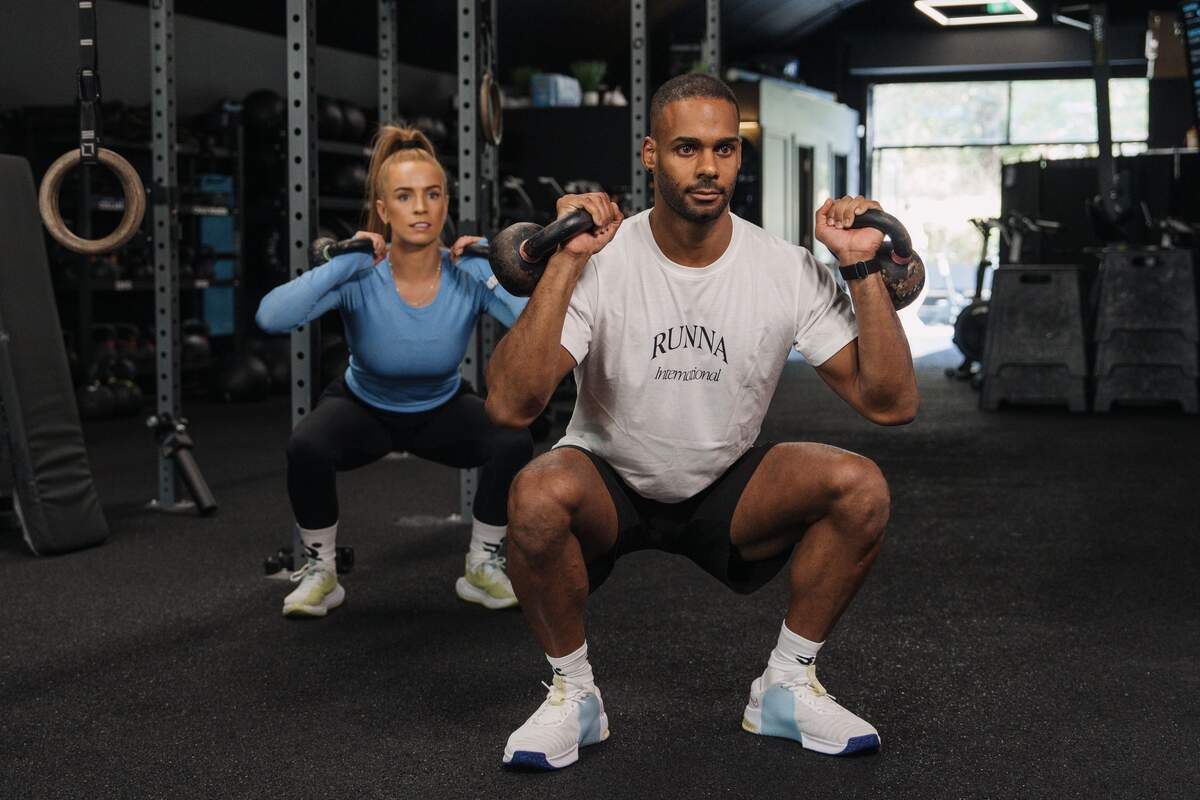
Pacing
Ultramarathon pacing isn’t about running fast - it’s about running smart. Holding back early, staying consistent through the middle miles, and finishing steady is the key to making it to the end. Unlike shorter races, effort matters more than exact splits, especially on trails and uneven terrain.
- First half: Keep things very comfortable and stick to the slower side of your target pace. Ignore the excitement of the early miles and don’t compare yourself to other runners - focus on rhythm and conserving energy.
- Middle miles: This is where the ultra really begins. Break the distance into manageable chunks - the next climb, checkpoint, or 5k - and fuel regularly. If you feel good, you can lift the pace slightly, but only by a few seconds per kilometer. If in doubt, hold back.
- Final push: Fatigue is inevitable, but pacing can keep you moving. Hold your form, lean on your fueling strategy, and use mental cues - targeting the next runner or marker - to keep momentum. In the closing kilometers, dig deep and give everything you have left.
Practicing pacing in training - including running on tired legs and across varied terrain - builds the confidence to manage your effort on race day. Runna programs this into your plan so you know exactly how to approach each section.
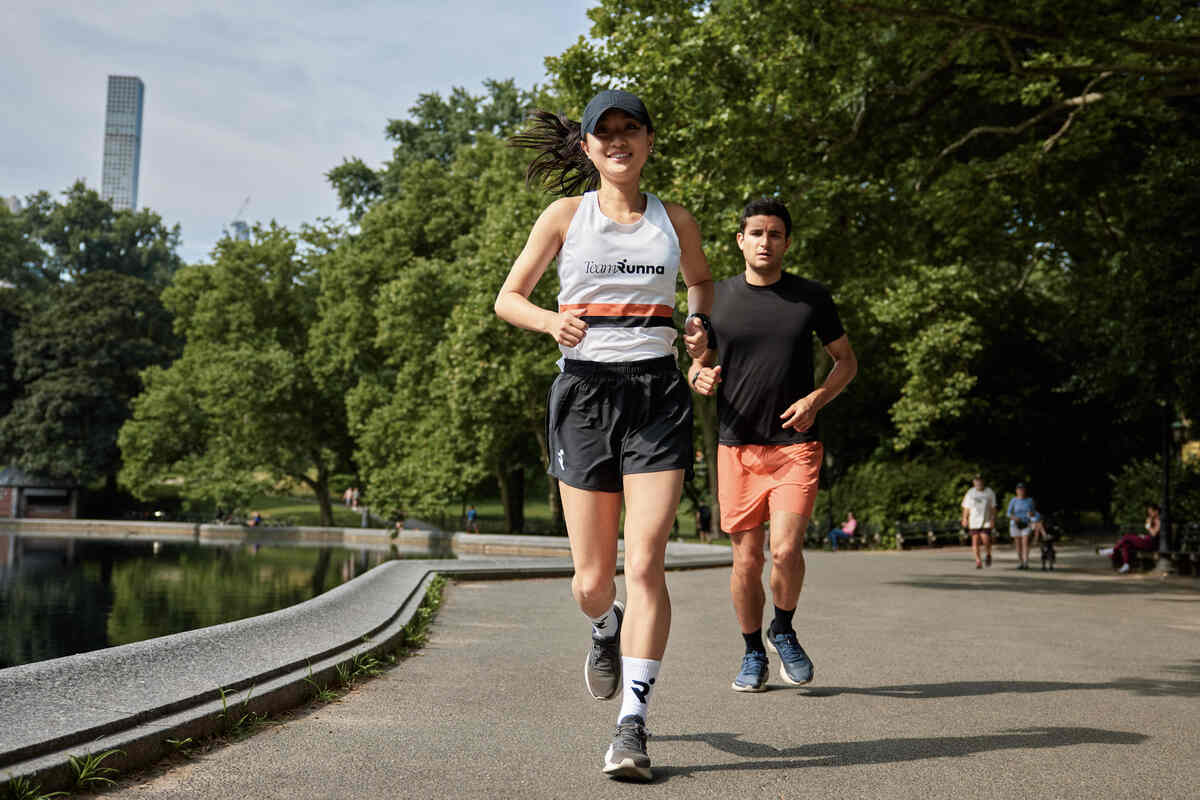
Form
Good running form is your secret weapon in an ultra. Running efficiently will:
- Protect your body from the repeated impact of hours (or even days) of running.
- Save energy so you can maintain a steady pace across long distances.
- Reduce the risk of injury during heavy training loads and demanding race conditions.
Form is something you’ve developed over a lifetime, so making adjustments may feel strange at first. Be patient and focus on small, gradual improvements — especially during long runs, when fatigue makes it hardest to hold good technique.
For ultramarathon training, form is about efficiency and resilience. Staying tall, relaxed, and economical helps you conserve energy in the early miles and maintain strong technique on tired legs. Short, light strides reduce impact, while walking steep climbs and controlling descents protects your muscles and joints.
With Runna, you’ll get cues and reminders built into your plan so you can practice these habits until they feel natural — giving you the efficiency and durability you need to go the distance.

Recovery
Recovery isn’t optional - it’s where you actually get stronger. Ultra training is heavy on your body, so make recovery non-negotiable.
- Rest: After an ultra or big block, take several full days off running. Use light walking, swimming, or cycling to keep blood moving.
- Fuel: Carbs restore glycogen and protein repairs muscle. Prioritize both right after runs and in every meal during recovery.
- Sleep: 8+ hours a night is the gold standard. Add naps if needed — your body needs every bit of repair it can get.
- Mobility & massage: Stretching, yoga, foam rolling, or massage keeps you loose, reduces soreness, and helps prevent injury.
- Listen to your body: Soreness is normal; sharp or persistent pain is not. If you need more time, take it. Better to miss a session than lose weeks to injury.
- Set your next target: A clear goal keeps your motivation alive once the adrenaline of race day fades.
Treat recovery with the same discipline as training - it’s what lets you come back stronger.

Gear
In an ultra, gear can make or break your race. Comfort and reliability are everything when you’re out for hours or days.
- Shoes: Choose based on terrain - cushioned shoes for roads, grippy and stable for trails. Replace every 300-500 miles. Test them on long runs, never race in something new.
- Clothing: Technical fabrics that wick and dry quickly prevent chafing. Avoid cotton. Use proper running socks; women should wear a supportive sports bra. Always test race kit in long sessions.
- Hydration gear: Vests, belts, or handhelds keep fluids close. Train with your system so it feels natural.
- Fuel supplies: Gels, chews, bars, or real food - carry what you’ve proven in training, plus spares for long stretches.
- Watch/GPS: Essential for tracking pace, distance, and heart rate. Runna syncs with Garmin, Apple Watch, Coros, and Strava so everything is in one place.
- Weather protection: Sunscreen, hats, sunglasses, or waterproof layers depending on your race conditions.
- Extras: Anti-chafing cream, headlamps for night sections, and spare layers for cold races.
The golden rule: use training to perfect your setup so everything feels second nature when it counts.
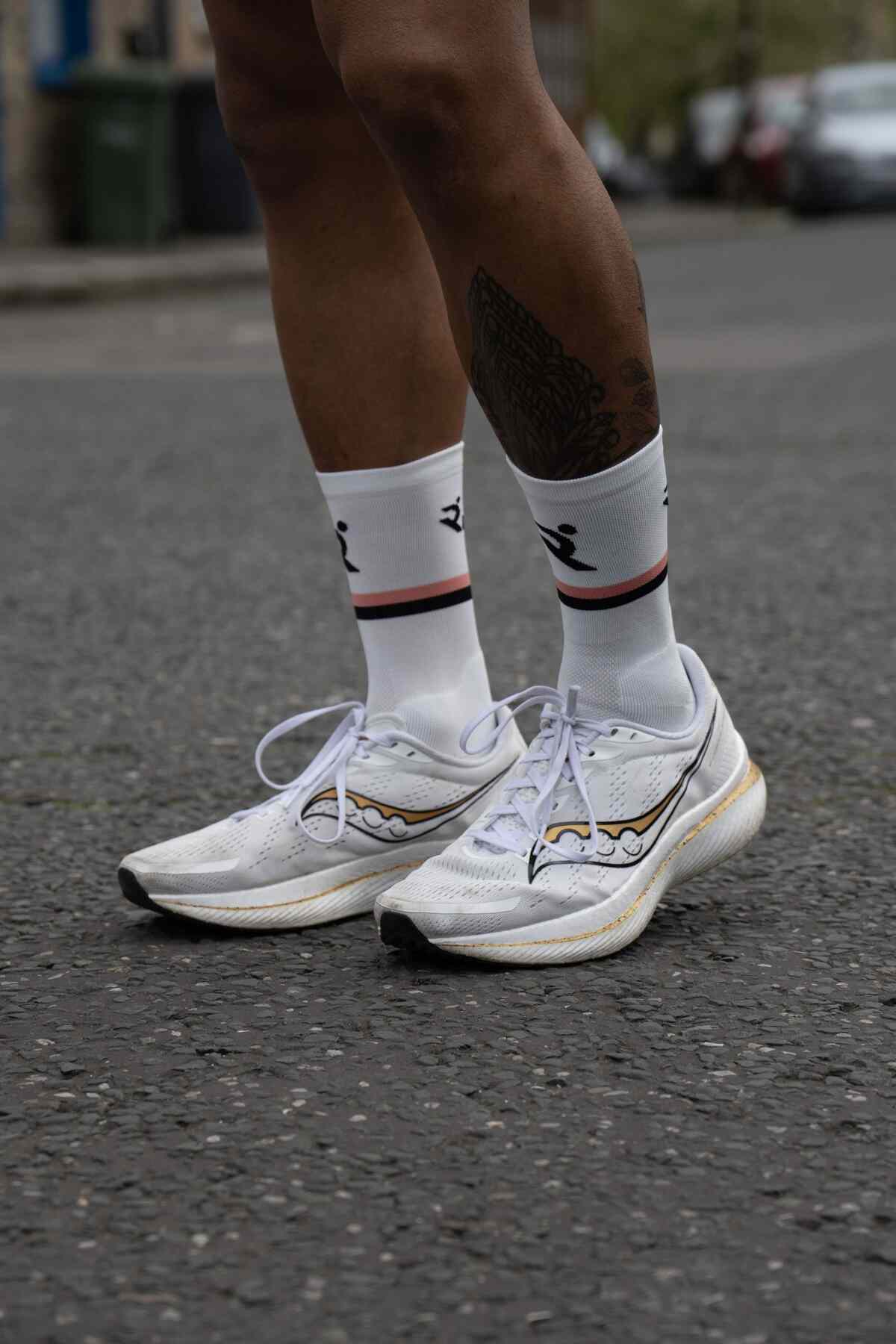
As featured in




Stories from Runnas
FAQs: All you need to know about running an ultramarathon
Ultramarathon distance: how long is an ultramarathon?
An ultramarathon is any race that’s longer than a marathon, i.e. 42.195 kilometers or approx. 26.2 miles.
Ultramarathons vary widely in distance, from 50 kilometers to 320 kilometers or more. Here are some of the most common distances:
- 50 kilometers or 31.07 miles
- 100 kilometers or 62.14 miles
- 50 miles or 80.47 kilometers
- 100 miles or 160.93 kilometers
There are also longer multi-day races of 110 to 320 kilometers or more, sometimes including breaks for sleep.
How long will it take me to prepare for an ultramarathon?
The time you need to prepare for an ultramarathon will vary based on your current fitness level, running experience, and the race distance.
If you’re a highly experienced marathoner and are looking to transition to a 50k race, then a few weeks of targeted training might be sufficient.
If you have some experience running but haven’t completed any long-distance runs, you might want to consider an easier goal, such as a marathon, and use it as a milestone in your ultramarathon training.
If you already have experience running long distances but want to prepare for your next race using a more structured approach, using a personalized ultramarathon training plan like the ones we offer at Runna is a perfect way to improve your performance and endurance.
Which ultramarathon training plan should I pick?
Which plan is best suited for you depends on your experience, level of training, and the race’s distance. At Runna, we offer lots of different training plans that are adapted to every runner’s level of experience and to all kinds of different race distances.
You can use them for Ultra X races, the Marathon des Sables, or any other ultra running event you want to participate in.
A personalized ultramarathon training plan that takes into account your goals, schedule, and current race time is ideal for helping you level up your running game and cross that finish line.
What ultramarathon finishing time should I aim for?
If this will be your first race, simply finishing it is a great achievement! Focus on making it as comfortable as possible – and, of course, injury-free.
If you have already run one or more ultramarathons, you can set a goal that’s slightly faster than your last time – but remember that each ultra is unique and that factors such as the terrain and weather will inevitably affect your finishing time.
To become a faster runner and make the most of your training, use one of Runna’s personalized training plans.
Ultramarathon training and injuries: What should I do if I'm recovering from an injury?
If you’ve had a recent injury, consult with a physiotherapist or a sports medicine doctor before you start training for your next ultramarathon. They’ll be able to guide you through recovery and help you set realistic goals and a recovery plan.
Once you have their green light, start with slow, short, easy runs and ease your way into higher weekly mileages. Adapt your training plan to your injury and to how your body feels after each run; don’t hesitate to take more time off or skip a session, if necessary.
I only have 12 weeks to prepare. What should I do?
To prepare safely for an ultramarathon, you need enough time, ideally 16 weeks or more. That being said, if you’re an experienced long-distance runner and have a few marathons under your belt, you could prepare for an ultramarathon in a shorter time.
Prioritize long runs, active recovery, and proper nutrition. A personalized ultramarathon training plan can help you make the most of your limited time without risking an injury.
Ultramarathon and general fitness: Do I need to do strength training to run an ultramarathon?
Strength training is not an absolute must, but will be very beneficial for improving your overall running performance and speed – and for preventing injuries. Runna’s ultramarathon running plans feature optional strength training sessions to help you build strength and endurance for your race.
I'm not reading for my first ultramarathon yet. What's an easier goal I can aim for?
A marathon is the ideal stepping stone towards your first ultra running event. If you already have a few half-marathons or marathons under your belt but don’t feel ready to do your first ultramarathon yet, work on improving your finishing time.
Find out more about choosing the right running goal for you.
How can I progress from a marathon to an ultramarathon?
To progress from a marathon to an ultramarathon, increase your weekly mileage gradually, add longer runs into your routine, and aim to build your endurance with interval and tempo training sessions.
To prepare for your first ultramarathon safely and efficiently, use one of our personalized training plans. This way, you’ll be using a more structured approach to your training and improve your performance without risking an injury.
Inspiration
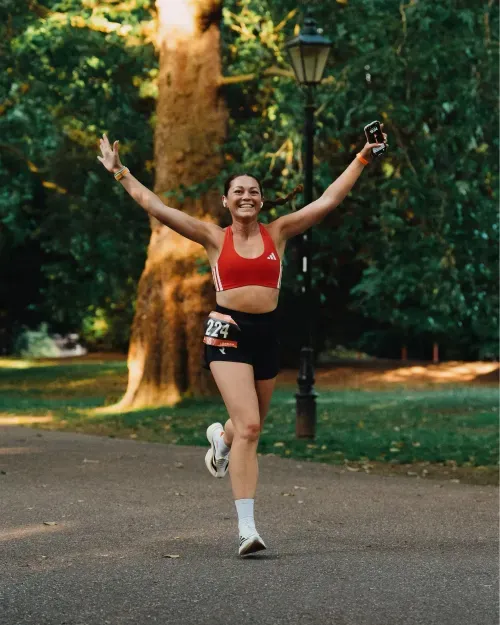
The Ultimate Ultramarathon Training Guide
Ultramarathons are some of the toughest challenges that runners attempt, so we've put together a guide to help you conquer them!

How to Fuel Your Training
Find out how to fuel and hydrate yourself before, during and after your runs with this handy overview guide

Understanding your long runs
Here we explain the purpose of a weekly long run and explain why the pace within your long runs varies week on week.

